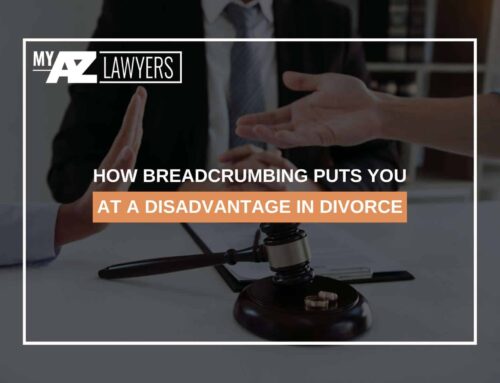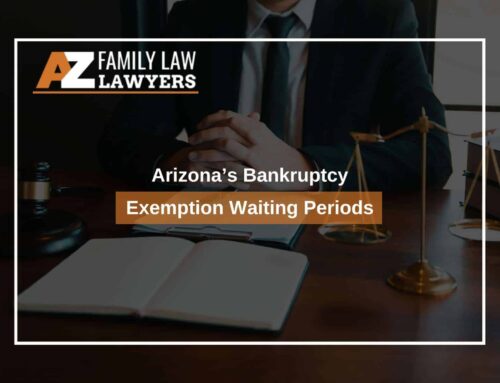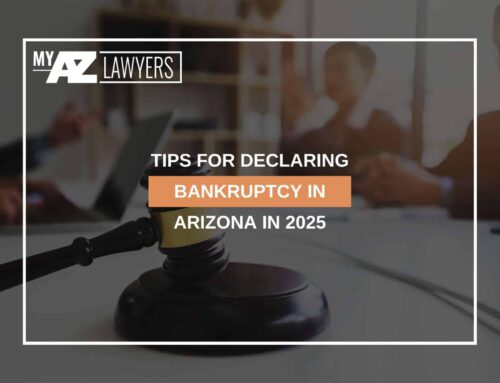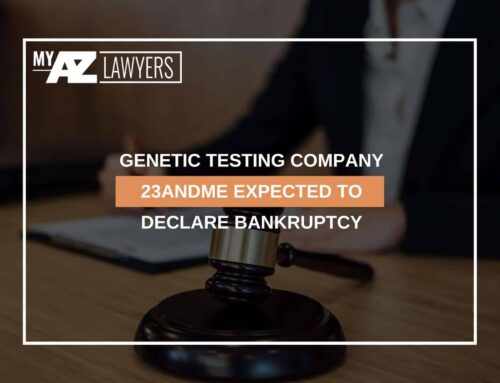Table Of Contents
- The Repercussions Of Putting Your Property In The Name Of Your Husband Or Wife & Filing Bankruptcy
- Arizona Bankruptcy Basics
- Filing Chapter 7 Bankruptcy In Phoenix, Arizona
- Qualifying For Chapter 7 Bankruptcy in Arizona
- Filing Chapter 13 Bankruptcy In Phoenix, Arizona
- If I Transfer a Non-Exempt Asset To a Relative Or Non-Filing Spouse, What Happens If My Chapter 7 Bankruptcy Trustee Finds Out?
- Protect Your Interests With a Dedicated Phoenix Bankruptcy Attorney
Can I Put My Property In My Spouse’s Name & File For Bankruptcy In Arizona?
The Repercussions Of Putting Your Property In The Name Of Your Husband Or Wife & Filing Bankruptcy
Our Phoenix Bankruptcy Lawyers and Tucson Bankruptcy Attorneys discuss the repercussions of putting your property in the name of your spouse and then filing bankruptcy in Arizona. Our experienced Phoenix debt relief attorneys define Chapter 7 Bankruptcy and chapter 13 Bankruptcy. Additionally, they dive into different scenarios of property transfers and declaring bankruptcy in Phoenix and Tucson, Arizona.
Bankruptcy can be a powerful tool that reorganizes or eliminates your debts. Erasing thousands of dollars of unsecured debt could give you several new opportunities in life. Filing bankruptcy also triggers the Automatic Stay, which stops your creditors from taking actions like repossessing your vehicle, garnishing your wages, foreclosing your home, and more. But you can’t take advantage of these massive benefits if you have the financial means to pay your debts on your own.
There are strict requirements you must meet to be eligible to file Chapter 7 bankruptcy in Arizona, which is the type of consumer bankruptcy that doesn’t require you to pay back your debts. And while not a strict requirement, any assets that aren’t protected by state bankruptcy exemptions are at risk of being taken by your bankruptcy trustee to pay your creditors. So sometimes, clients come to us with what they believe is a novel workaround- filing bankruptcy without their spouse, and transferring non-exempt assets to their spouse beforehand. Read on to learn more about how using this strategy could work out when you file an Arizona bankruptcy.
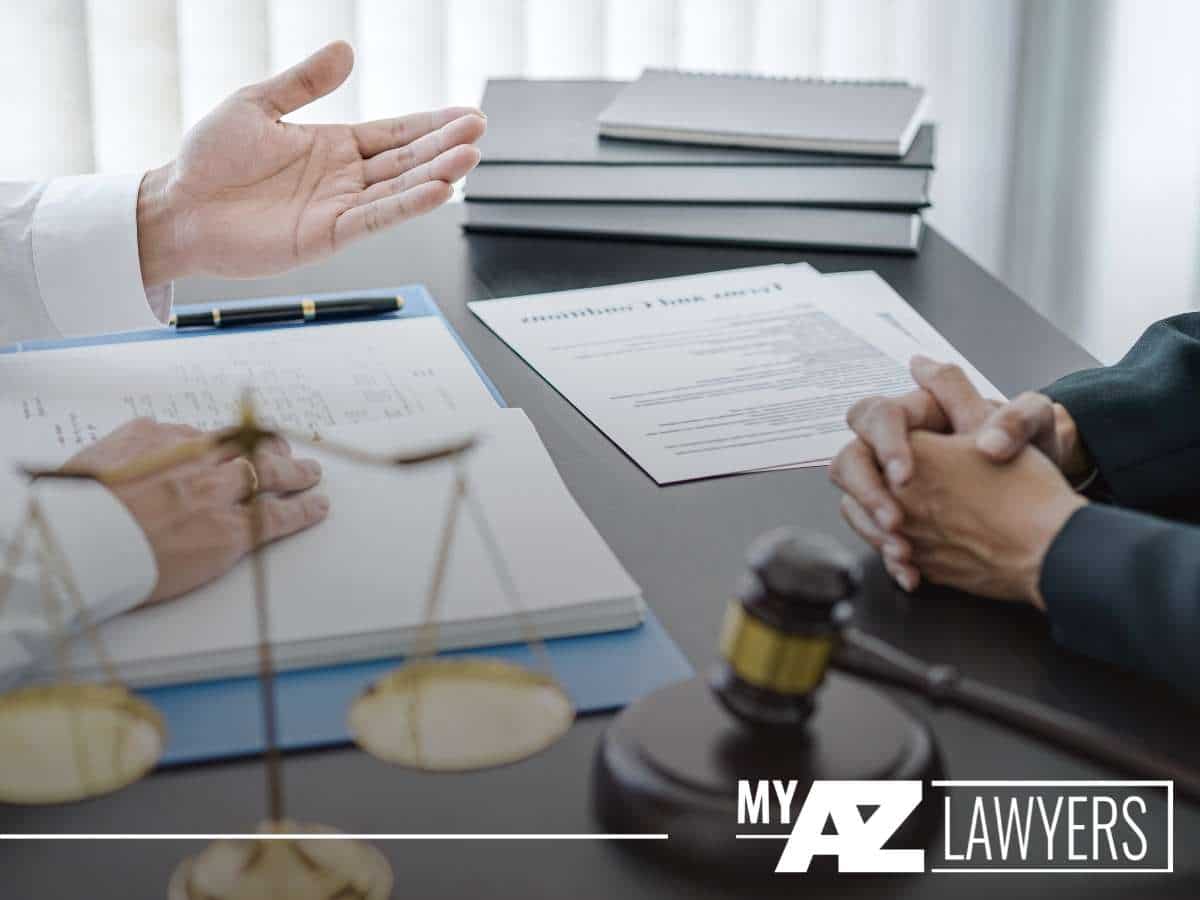
Arizona Bankruptcy Basics
It’s almost impossible to continue without first giving a brief overview of some bankruptcy basics. Most people in Arizona file either Chapter 7 or Chapter 13 bankruptcy. If you are married, you have the option between filing as an individual or as a married couple. A bankruptcy trustee will be assigned to oversee your case, making sure you aren’t hiding assets that could be used towards your debts. You will need to attend a hearing known as a 341 Meeting of Creditors, in which you will meet with the trustee and any creditors that choose to attend.
Filing Chapter 7 Bankruptcy In Phoenix, Arizona
Chapter 7 bankruptcy is what most people think of when they hear the word “bankruptcy.” It clears away unsecured debts like credit cards, medical bills, and personal loans. To qualify for such an enormous benefit, you must meet one of two income requirement tests. The first is a comparison of your income to Arizona’s median income based on your household size. For a single individual, this is $55,839 per year. If you are married or have one minor child, it is $69,975. This increases to $75,560, $85,714, $94,714, and so on, for each additional family member. Only a spouse and children under the age of 18 count as family members for bankruptcy calculation purposes. If you make more than the Arizona median income for your household size, you will need to qualify for Chapter 7 bankruptcy using the Means Test.
The Bankruptcy Means Test in Arizona is a bit more complicated than comparing your income to the state median income. If you aren’t paid on a salary basis, you will first find your average monthly income over the previous 6 months. Then, you will subtract necessary expenses from your average monthly income. This includes a wide variety of expenses, like rent or mortgage payments, utilities, student loans, child support and spousal maintenance, taxes, and more. The number you calculate, which represents how much spare income you have that could be used to pay your debts, is known as your disposable monthly income. If this number is negative, or falls within Arizona’s limits, you can file Chapter 7 bankruptcy. If you can’t qualify under either of these methods, you will need to instead file Chapter 13 bankruptcy.
Qualifying For Chapter 7 Bankruptcy in Arizona
Another major concern besides income qualification when filing Chapter 7 bankruptcy is protecting your assets. Each state has its own bankruptcy exemptions, which represent how much equity you can hold in certain asset categories. Unlike some other states, Arizona doesn’t allow for use of federal bankruptcy exemptions. Your bankruptcy trustee has the right to seize any assets that aren’t protected by exemptions to sell and pay your debts. They also have a great incentive to do so, as they also receive a percentage of the proceeds.
The homestead exemption, or the exemption used to protect your house, RV, etc., is $150,000. For motor vehicles, the exemption in Arizona for married couples is $6,000 each for two vehicles or $12,000 for one vehicle. The exemption for household goods and furnishings is also $6,000. For engagement and wedding rings, the Arizona exemption is $2,000. Only $20,000 of life insurance proceeds are protected in an Arizona Chapter 7 bankruptcy. However, all child support and spousal maintenance payments are exempt. One important Chapter 7 bankruptcy exemption to note in Arizona is for bank accounts. Arizona only allows $300 on the day of filing for an individual, and $600 for a married couple. This means carefully timing your bankruptcy petition to make sure there aren’t nonexempt funds in your account on the day of filing. Contact our firm for your free consultation if you need additional information about Arizona’s bankruptcy exemptions.
Filing Chapter 13 Bankruptcy In Phoenix, Arizona
Chapter 13 bankruptcy is usually available to those whose income exceeds Arizona’s Chapter 7 income limits. It reorganizes debts into a payment plan that is divided and paid off in four categories of debt. For someone who qualifies for Chapter 7 bankruptcy, the payment plan will last 3 years. For those who don’t, it lasts 5 years. You are safe to keep paid in full assets in a Chapter 13 bankruptcy because you will be paying off most of your debts in your payment plan. Only some of your unsecured nonpriority debts may be discharged at the end of your payment plan. So if your assets aren’t protected in a Chapter 7 bankruptcy, you may want to consider filing Chapter 13 instead.
If I Transfer a Non-Exempt Asset To a Relative Or Non-Filing Spouse, What Happens If My Chapter 7 Bankruptcy Trustee Finds Out?
Some resourceful Chapter 7 filers consider the idea of transferring an asset such as a vehicle or real estate to a loved one that won’t be included in the bankruptcy before filing. This might seem like a creative solution to the issue of non-exempt assets being taken in a Chapter 7 bankruptcy to pay creditors. But your bankruptcy trustee will have an eye out for these types of maneuvers. The trustee can review 2-4 years of prior transfers to make sure you haven’t hidden any assets that could be used to pay debts.
It’s always best to be honest and give full disclosure of prior property transfers on your bankruptcy petition. Your bankruptcy trustee may “claw back” preferential payments to your family members, as well as recover any other property like a vehicle or expensive watch. If the transfer was money, but the money is now gone, you will most likely be required to pay that sum to the trustee or face case dismissal. In serious cases, you could even be charged with bankruptcy fraud, which would result in massive fines and even prison time.
Protect Your Interests With a Dedicated Phoenix Bankruptcy Attorney
Whether or not you’ve made a “creative” transfer in recent years, it’s always best to proceed with the guidance of a professional when it comes to bankruptcy. And if your bankruptcy trustee catches you in a sketchy transfer, your case could be dismissed and make your financial situation even worse. You could even face felony charges for lying on your bankruptcy petition. Make sure your petition is filed in accordance with state law by filing with a knowledgeable and experienced bankruptcy attorney.
Our team of Phoenix and Tucson bankruptcy attorneys has collective decades of experience helping our clients achieve their bankruptcy goals and move forward with a fresh start. Furthermore, we will guide you through each step of the process, starting with your free initial consultation. Our free consultation is confidential and is the perfect opportunity to have all your questions about filing bankruptcy in Arizona answered. It’s also your opportunity to interview us. During your free consultation, we will check your bankruptcy qualification, as well as see if you qualify for our Zero Down Bankruptcy Payment Plan. Let us know when is most convenient for you through our online form or at 480-833-8000; telephone appointments available.
Arizona Offices:
Mesa Location:
1731 West Baseline Rd., Suite #100
Mesa, AZ 85202
Office: (480) 448-9800
Email: info@myazlawyers.com
Website: https://myazlawyers.com/
Phoenix Location:
343 West Roosevelt, Suite #100
Phoenix, AZ 85003
Office: (602) 609-7000
Glendale Location:
20325 N 51st Avenue Suite #134, Building 5
Glendale, AZ 85308
Office: (602) 509-0955
Tucson Location:
2 East Congress St., Suite #900-6A
Tucson, AZ 85701
Office: (520) 441-1450
Avondale Location:
12725 W. Indian School Rd., Ste E, #101
Avondale, AZ 85392
Office: (623) 469-6603


